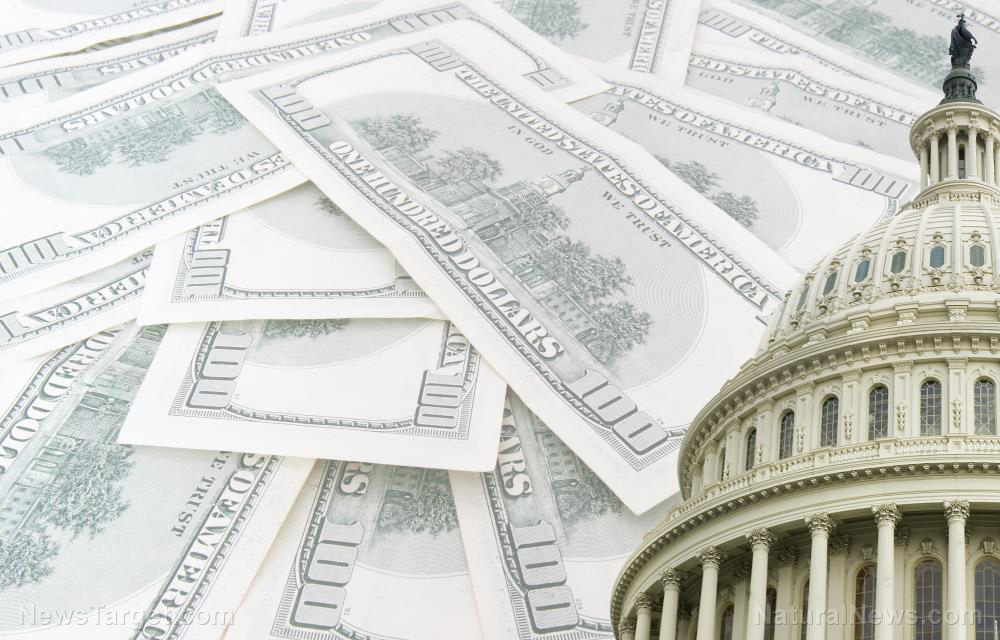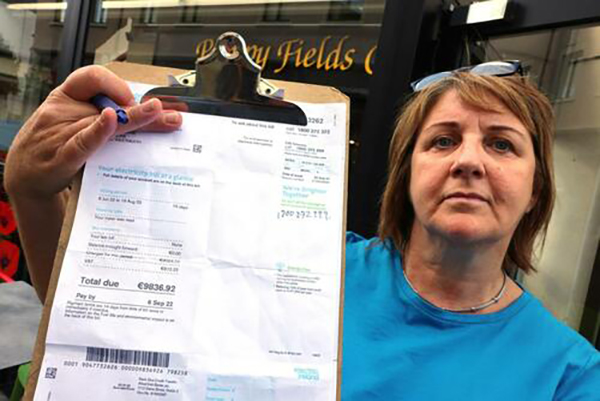Federal government set records for taxes, spending and deficit through May
07/19/2021 / By Franz Walker

The government set new records for the taxes it collected, the spending it engaged in and the deficit it ran for the first eight months of fiscal year 2021, according to the Department of Treasury‘s Monthly statement.
From October 2020 through May 2021, federal taxes hit a record $2.6 trillion while federal spending climbed to $4.7 trillion. This resulted in a federal deficit of $2.1 trillion.
Spending increased due to stimulus checks, emergency loans
Federal spending for the eight-month period ending in May rose by 29 percent, primarily due to higher receipts from individual and corporate income taxes.
Outlays, on the other hand, rose 20 percent, driven by payments for jobless benefits, nutrition assistance and Wuhan coronavirus (COVID-19) relief programs including stimulus checks to households and emergency small-business loans.
The federal government’s spending surge is seen as propelling a rapid recovery from the pandemic-induced economic slump. But at the same time, it has sent the federal debt – as a proportion of the economy – soaring to levels not seen since the end of World War II.
Federal debt has been on the rise in recent years, ever since the fiscal crisis at the end of former President George W. Bush’s administration and the start of Barack Obama’s tenure in office. In addition, spending programs and tax cuts implemented before the coronavirus pandemic hit also widened the gap sharply.
While federal receipts are likely to rise as consumer and business spending picks up and the latter add jobs, supply-chain challenges and a lack of workers for lower-paying jobs threaten to hold back growth.

Deficit to grow under Biden’s proposed 2022 budget
The deficit is likely to remain at the center of debate over President Joe Biden’s push to spend trillions of dollars more on infrastructure, education, clean energy and other programs. Revealed in late May, Biden’s $6 trillion budget proposal looks to increase spending on infrastructure, public health and education, while raising taxes on corporations and the wealthy.
In its proposals, the White House detailed plans to spend $4.5 trillion over the next decade on infrastructure and social programs. These plans, which the administration is looking to advance through Congress this summer, include $17 billion next year for improvements such as repairs to roads, bridges and airports, $4.5 billion to replace lead water pipes across the country and $13 billion to expand high-speed broadband.
Meanwhile, $3.2 billion will be spent to provide for universal preschool in 2022 and ensure that teachers at those schools earn $15 an hour. This is on top of $8.8 billion to be spent next year on families, including $6.7 billion for affordable child care and $750 million for paid leave. Those costs are expected to rise substantially in 2023 and beyond.
Biden’s budget projects a deficit of $1.84 trillion in the fiscal year starting October 2021. In addition, it forecasts that debt held by the public will rise to a level surpassing that seen in the wake of the Second World War.
This looming deficit has had some experts call for the federal government to rethink its priorities and rein in its spending.
Maya MacGuineas, president of the bipartisan Committee for a Responsible Federal Budget, stated that Washington now needs to start regaining control of its spending following its aggressive response to the pandemic.
“We met that challenge and then some, and now we need to take stock of our unsustainable fiscal outlook,” MacGuineas said in a statement. “Our leaders need to resist taking the easy way out and instead start confronting the necessary tradeoffs to pay for new spending initiatives, rather than saddling the youngest generations with the hard choices we decided to avoid.”
Follow NationalDebt.news for more on America’s growing budget deficit.
Sources include:
Submit a correction >>
Tagged Under:
Bubble, budget, budget deficit, Collapse, department of the treasury, economics, economy, federal government, government debt, national budget, spending
This article may contain statements that reflect the opinion of the author
RECENT NEWS & ARTICLES
COPYRIGHT © 2017 COLLAPSE.NEWS
All content posted on this site is protected under Free Speech. Collapse.news is not responsible for content written by contributing authors. The information on this site is provided for educational and entertainment purposes only. It is not intended as a substitute for professional advice of any kind. Collapse.news assumes no responsibility for the use or misuse of this material. All trademarks, registered trademarks and service marks mentioned on this site are the property of their respective owners.





















